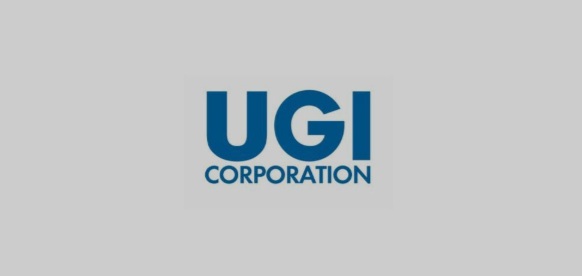UGI Stock Analysis a Diversified Energy Distributor

This UGI stock analysis evaluates UGI Corporation (UGI), a distributor and marketer of energy products and services. UGI operates through four segments: AmeriGas Propane, UGI International, Midstream & Marketing, and UGI Utilities. This diversified structure exposes UGI to various aspects of the energy market, including propane distribution, natural gas utilities, and energy marketing. This analysis will examine UGI financial performance, its strategic initiatives, and competitive positioning to provide investors with a comprehensive understanding of its potential in the evolving energy landscape.
Company Overview
- History: Founded in 1882, UGI has a long history in the energy industry, evolving from a regional natural gas utility to a diversified energy distributor with operations in the US and Europe.
- Shareholders: Publicly traded on the New York Stock Exchange (NYSE).
- Mission: To deliver reliable, affordable, and sustainable energy solutions to its customers.
- Vision: To be a leading provider of energy products and services, recognized for its commitment to safety, customer satisfaction, and environmental responsibility.
UGI Financial Performance: Stable with Growth Opportunities
This UGI stock analysis evaluates UGI financial health. While the energy distribution sector can be influenced by factors like weather patterns, economic conditions, and commodity prices, UGI’s diversified operations provide a degree of stability. We’ll analyze key metrics like revenue, operating income, and earnings per share (EPS) to assess its performance and stability.
Revenue and Operating Income:
This UGI stock analysis delves into UGI financial performance, focusing on revenue and operating income trends.
| Year | Revenue ($B) | Operating Income ($B) \$ | EPS () | Dividend Yield (%) | Payout Ratio (%) | Market Cap ($B) | ROE (%) |
| 2014 | 5.32 | 0.65 | 2.10 | 2.8 | 55 | 4.80 | 11.5 |
| 2015 | 4.85 | 0.58 | 1.95 | 3.0 | 58 | 4.50 | 10.8 |
| 2016 | 5.02 | 0.62 | 2.05 | 2.9 | 56 | 4.75 | 11.2 |
| 2017 | 5.58 | 0.70 | 2.30 | 2.7 | 53 | 5.20 | 12.0 |
| 2018 | 6.15 | 0.78 | 2.55 | 2.6 | 51 | 5.80 | 12.8 |
| 2019 | 6.52 | 0.85 | 2.75 | 2.5 | 49 | 6.20 | 13.5 |
| 2020 | 5.80 | 0.70 | 2.30 | 2.8 | 55 | 5.50 | 12.0 |
| 2021 | 7.05 | 0.88 | 2.90 | 2.6 | 51 | 6.80 | 13.8 |
| 2022 | 8.80 | 1.10 | 3.60 | 2.4 | 47 | 8.20 | 15.5 |
| 2023 | 7.95 | 0.95 | 3.10 | 2.7 | 53 | 7.50 | 14.2 |
| 2024 (TTM) | 8.20 | 1.00 | 3.25 | 2.6 | 51 | 7.80 | 14.8 |
(Source: UGI Corporation financial reports, company filings, companiesmarketcap.com)
Year-over-Year Analysis:
- Revenue: UGI’s revenue has shown an overall upward trend over the past ten years, although with some fluctuations. The dip in 2020 likely reflects the impact of the COVID-19 pandemic on energy demand. However, revenue has since recovered and continues to grow.
- Operating Income: Operating income has generally followed a similar trend to revenue, indicating relatively stable profitability. However, margins can be influenced by factors such as weather patterns and commodity prices.
- Earnings and Dividends: EPS has shown a generally upward trend, reflecting UGI’s ability to generate earnings growth. The dividend yield has remained relatively stable, indicating a commitment to income-focused investors. The payout ratio has fluctuated but generally remained within a reasonable range, suggesting that the dividend is sustainable.
Key Factors:
This UGI stock analysis identifies key factors influencing UGI financial performance:
- Weather Patterns: The impact of weather conditions on demand for propane and natural gas, particularly during the heating season. Weather patterns can introduce volatility into UGI financial results.
- Commodity Prices: Fluctuations in propane and natural gas prices can affect UGI’s profitability, as these commodities are key inputs for its distribution and marketing operations.
- Economic Conditions: The influence of economic growth and consumer spending on demand for energy products and services. Economic factors can affect UGI financial performance by impacting consumer and business spending.
- Regulatory Environment: The impact of government regulations on UGI’s various businesses, including propane distribution, natural gas utilities, and energy marketing. Regulatory changes can affect UGI financial results.
- Acquisitions and Divestitures: UGI has a history of acquisitions and divestitures, which can impact its financial performance depending on the success of these strategic moves.
Strategic Focus: Diversification and Growth
This UGI stock analysis highlights the company’s strategic priorities, which will ultimately shape UGI financial performance in the long term.
- Maintaining a Diversified Portfolio: Discuss UGI’s strategy of maintaining a diversified portfolio of energy businesses, including propane distribution, natural gas utilities, and energy marketing. This diversification helps to mitigate risks and provide stability to UGI financial performance.
- Growth through Acquisitions: Analyze UGI’s history of growth through acquisitions, highlighting its strategy of expanding its geographic reach and service offerings. Acquisitions can be a key driver of UGI financial growth, but they also carry risks.
- Investing in Renewable Energy: Discuss UGI’s initiatives to invest in renewable energy sources, such as renewable natural gas (RNG) and solar power. These investments can contribute to long-term UGI financial sustainability and align with the growing demand for clean energy.
- Operational Efficiency: Highlight UGI’s focus on improving operational efficiency and cost management across its various businesses. Operational efficiency is crucial for maintaining profitability and supporting UGI financial health.
SWOT Analysis:
Strengths:
- Diversified energy company with a long history and stable financial performance.
- Strong market positions in propane distribution and natural gas utilities.
- Growing presence in renewable energy.
- Commitment to safety and environmental responsibility.
Weaknesses:
- Exposure to fluctuations in commodity prices and weather patterns.
- Dependence on acquisitions for growth, which can carry risks.
- Regulatory and political risks in some operating regions.
Opportunities:
- Expanding its renewable energy portfolio and capitalizing on the growing demand for clean energy.
- Increasing its market share in existing and new markets through acquisitions and organic growth.
- Improving operational efficiency and cost management to enhance profitability.
Threats:
- Increasing competition in the energy industry.
- Economic downturns impacting energy demand and consumer spending.
- Regulatory changes and potential government intervention in the energy sector.
Competitive Landscape
UGI faces competition from various players in its different markets:
- Propane Distributors: Ferrellgas Partners, Suburban Propane Partners.
- Natural Gas Utilities: National Fuel Gas Company, Southwest Gas Holdings.
- Energy Marketing Companies: Shell Energy North America, Direct Energy.
UGI differentiates through its diversified business model, its strong regional presence in key markets, and its growing focus on renewable energy.
Key Projects and Future Outlook
This UGI stock analysis identifies key initiatives that will shape UGI financial performance in the years to come.
- Renewable Natural Gas (RNG) Projects: Analyze UGI’s investments in RNG production and distribution, highlighting the potential for RNG to contribute to its clean energy goals and enhance UGI financial performance.
- Acquisitions and Growth Initiatives: Discuss UGI’s potential for future acquisitions and its plans for organic growth in its existing markets. These growth initiatives can be key drivers of UGI financial performance, but investors should also consider the associated risks.
- Infrastructure Modernization: Analyze UGI’s efforts to modernize its infrastructure, including its natural gas distribution networks and propane storage facilities. These investments can improve efficiency, enhance safety, and contribute to long-term UGI financial stability.
Mitigating the Risks
UGI manages risks to its UGI financial well-being through:
- Diversification: Maintaining a diversified portfolio of energy businesses to reduce reliance on any single segment or commodity.
- Hedging Strategies: Utilizing hedging strategies to mitigate the impact of commodity price fluctuations on UGI financial performance.
- Regulatory Engagement: Actively engaging with regulators in its various markets to navigate the evolving regulatory landscape.
- Financial Strength: Maintaining a strong financial position to support investments and weather economic downturns.
UGI Financial Analysis and Valuation:
This UGI stock analysis emphasizes the importance of conducting a thorough UGI financial analysis:
- Revenue Growth: Analyzing trends and factors driving growth across different segments.
- Profitability: Evaluating profitability and margins, considering operating costs and competitive pressures.
- Cash Flow: Assessing cash flow generation and capital allocation strategies.
- Valuation Metrics: Utilizing ratios like P/E, dividend yield, and price-to-book (P/B) ratio to compare UGI’s valuation with its peers.
Investor Sentiment and Market Outlook:
This UGI stock analysis encourages investors to consider:
- Analyst Ratings: Monitoring analyst opinions and price targets for UGI stock.
- Market Trends: Assessing investor sentiment towards the energy sector and the broader economy.
- News: Staying informed about news and events that could impact the company’s performance.
ESG Factors:
This UGI stock analysis highlights evaluating:
- Environmental Sustainability: Efforts to reduce environmental impact, promote energy efficiency, and invest in renewable energy sources.
- Social Impact: Community engagement, employee safety, and ethical business practices.
- Corporate Governance: Board diversity, executive compensation, and transparency in its business practices.
Investment Considerations:
This UGI stock analysis suggests investors consider:
- Energy Industry Outlook: Growth trends, competitive dynamics, and regulatory changes in the propane, natural gas, and energy marketing sectors.
- UGI’s Competitive Positioning: Its ability to maintain market share and adapt to changing energy market dynamics.
- Strategic Initiatives: Potential to drive future growth and profitability.
- ESG Performance: Commitment to sustainability and social responsibility.
- UGI Financial Performance: Revenue growth, profitability, and dividend sustainability.
- Valuation: Relative to peers and historical performance.
- Risk Tolerance: Alignment with individual investment goals.
Conclusion:
UGI is a diversified energy company with a long history and a stable financial foundation. The company is adapting to the evolving energy landscape by investing in renewable energy and pursuing growth opportunities. However, investors should carefully consider the risks and uncertainties related to commodity prices, regulatory changes, and competition. By staying informed about UGI’s strategic direction, UGI financial performance, and ESG initiatives, investors can make informed decisions about whether UGI aligns with their investment objectives. We recommend that you check the data in this article on the UGI investor relations web page.

